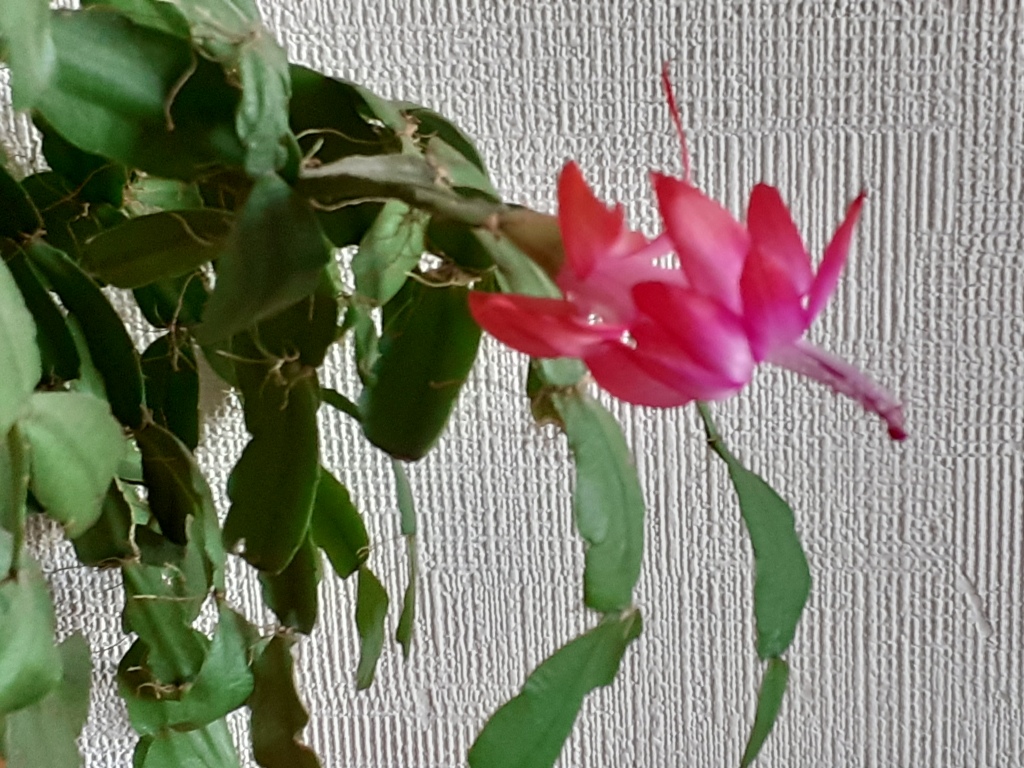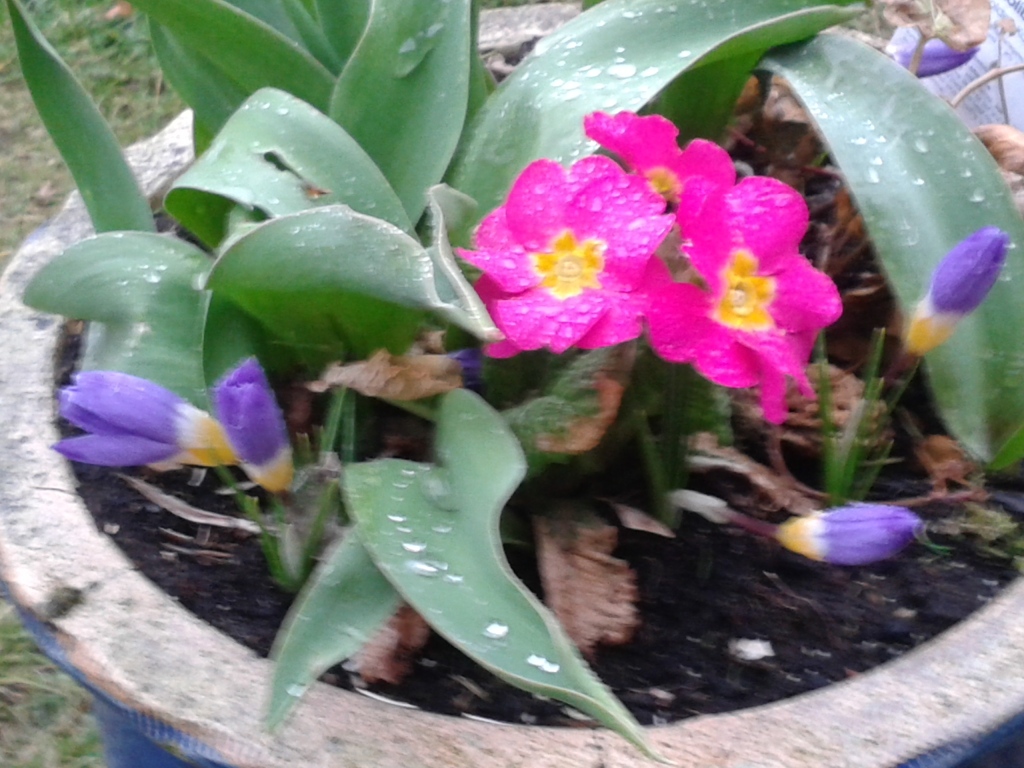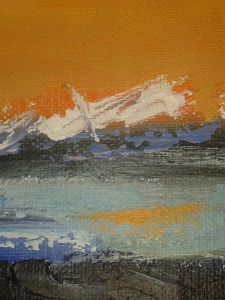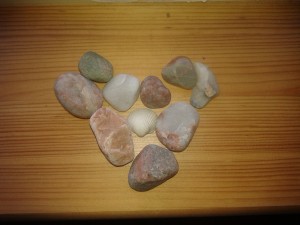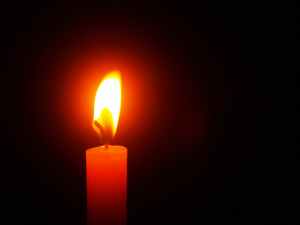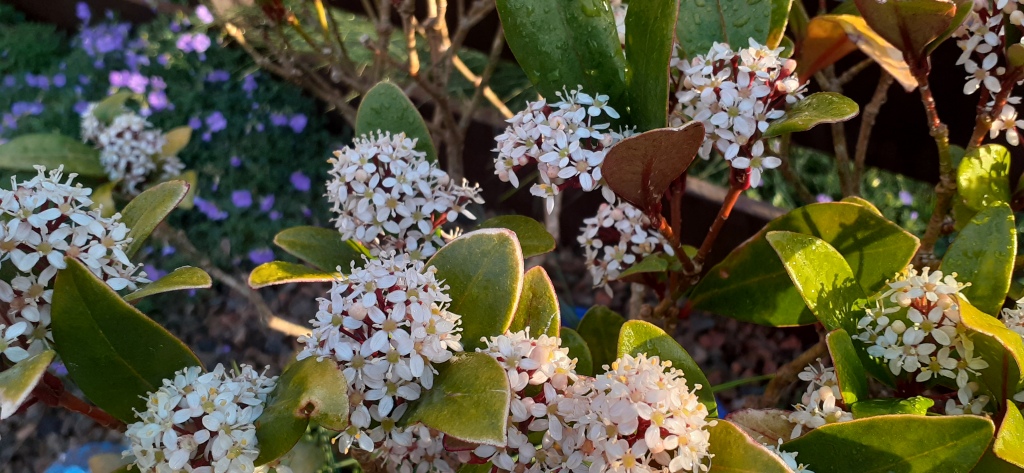
Not knowing what to do this Lent
Lent has drawn to an end and I feel I did not offer much. If anything, Lent has been a little easier than the rest of the year.
I always thought Lent was about giving up something you enjoyed, usually some kind of food. Over the last few years, I have develop a chronic health condition and have already given up all the usual suspects I might normally avoid for Lent – tea, coffee, alcohol, chocolate, sugar, to say nothing of dairy and soya. Sometimes it feels like Lent all the time.
Over the last year or two, I tried to add something in instead of giving something up, like reading a spiritual book at bedtime. This year I was so exhausted that I couldn’t concentrate on ‘Catholicism’ by Robert Barron, although I intend to re-read it sometime. It is an excellent book.
I was several weeks into Lent and unsure what my Lent was about when it seemed that all I was being asked to do was rest.
That might seem easy, but not for me. In an attempt to improve my health, I have been reading ‘Decoding Your Fatigue’ by Alex Howard. He talks about the loads put on the nervous system by external events and also the loads placed on it by our own choices. He identifies five personality patterns which put excessive demands on the body. I recognised myself in all five of them, but particularly in achiever and anxiety patterns.
Gradually I realised this Lent that in order to rest, which I desperately needed to do, I would have to give up my drive to achieve as well as my persistent worries. That doesn’t mean having no goals or not being concerned about others. But it has meant trying to listen to my body, which tells me when I am doing too much. It has meant resisting the temptation to score one more item off my to-do list before going to bed.
With anxiety it has meant doing anything which clearly needs to be done to alleviate a situation and then leaving it in God’s hands.
Of course, all this has been imperfect. It’s incredibly difficult to change a strong achiever personality and resist the temptation to do just one more thing. Likewise, it’s hard to step out of the groove of worry and trust. However, I think I have made some small progress in that I feel less exhausted and some of the physical symptoms have eased.
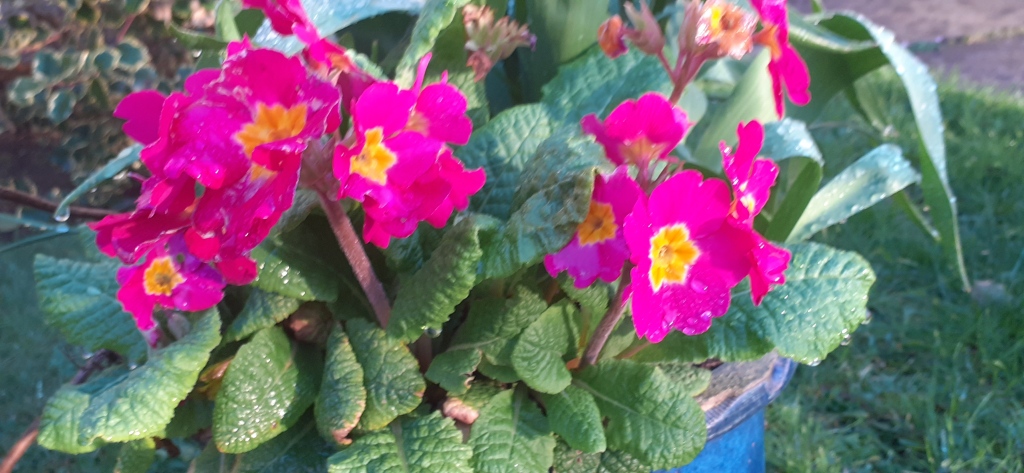
Challenges in Lent
Because I have begun to feel better physically, it fees like Lent has been a bit of a skive (Scottish word meaning you skip something you should be doing, eg skiving classes at school). How can resting be Lent? It has not just been about rest though. My Lent has also been bracketed by a painful challenge to faith and to trust.
On the first Sunday in Lent, we read about the devil leading Jesus to the parapet of the temple and tempting him to throw himself down, because ‘He will put his angels in charge of you to guard you.’ (Luke 4: 1-13)
Of course, Jesus resisted temptation and did not do what the devil wanted. As I heard this reading it hit me like a punch in the stomach that my sister gave in. She experienced the exact same temptation Jesus had, and she couldn’t hold out. What did she think at that final moment? I’ll never know. Perhaps she just wanted the inner pain to end.
After her death, a friend suggested the hymn, based on Psalm 26, ‘May the angels come to greet you, may they speed you to paradise, May God enfold you in his mercy, May you have eternal life.’ I tried to imagine that although her body died, her soul was embraced by the angels, and I try to have faith that God has mercy on her. But right at the beginning of Lent, it was a painful challenge to be reminded of the way she ended her life.
My sister died on a Thursday shortly after 8 pm. That’s why it feels particularly important to take part in the Maundy Thursday liturgy which begins at 8 pm and remembers the night before Jesus died and the instigation of the Eucharist. I went this year without feeling any particular emotion although I had, as I do in every Mass, the intention of praying for my sister’s soul and for the lives of all of us devastated by her death.
A betrayal
As I listened to the story of Jesus’ betrayal by Judas, I realised that this is the small part of the Passion narrative which I have been asked to bear. What is a suicide if it is not a betrayal of our love?
I know that my sister was ill, that she didn’t get the help she needed, that she had just been put on a new medication which carried the risk of ‘suicidal ideation’. I can try to rationalise what happened, but there is still a part of me which feels guilty – if only I’d done more, perhaps I could have saved her – as well as a part of me which feels betrayed. I am like the giant in the ‘Neverending Story’ who has just seen his friend ripped away from him by a destructive force called the Nothing. He looks at his hands and says, ‘These are strong hands, but they weren’t strong enough.’ I wasn’t strong enough. My love wasn’t enough.
And Jesus love was not enough for Judas. His disciple gave into the temptation to betray him for thirty pieces of silver.
I often think about Judas. What happened in his childhood to make him so hungry for money? Did his father lose his land? Did his family become homeless? Did he think that money and a piece of land would give him the security he craved?
And how many temptations did he resist during the three years he was with Jesus, before finally caving in?
Father Ron Rolheiser writes compassionately about suicide and the notion of a happy death:
‘The circumstances of someone’s death, when those circumstances are sad or tragic, should not become a prism through which we then see that person’s whole life. What this means is that if someone dies in a morally compromised situation, in a moment or season of weakness, away from his or her church, in bitterness by suicide, or by an addiction, the goodness of that life an heart should not be judged by the circumstances of that death.’
I remember that Jesus also lost a much-loved friend to suicide. I believe, in fact I know, that he did not stop loving Judas after he was betrayed by him.
I pray regularly for those who have died by suicide. As I listened to the Maundy Thursday liturgy, I felt I must include Judas in my prayers. As in the case of my much-loved sister, God alone knows the whole story.
My prayer for myself and my family this Easter and also for others is that in the middle of what seems like an other dark year, the joy of Easter will break through.
